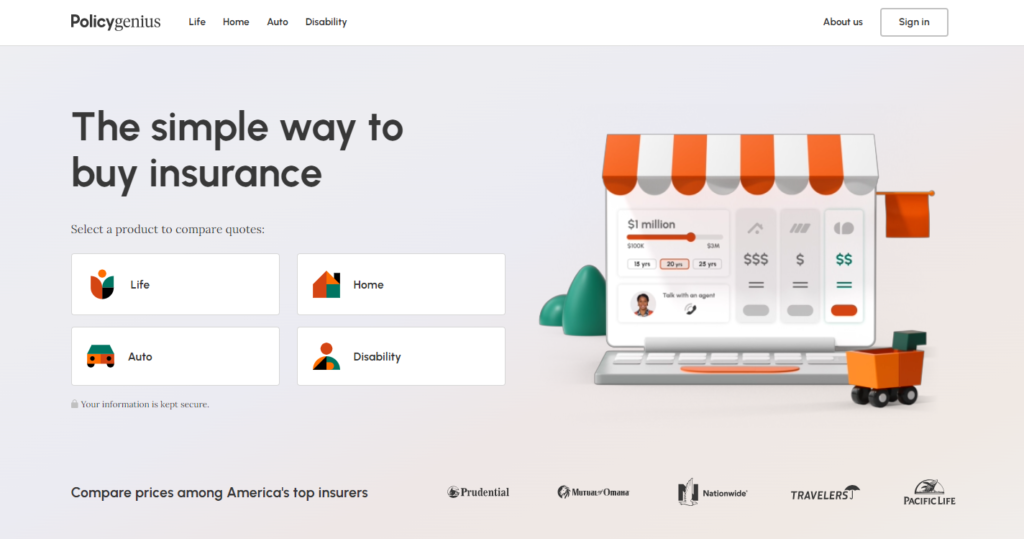“Money as a tool, money as a battery for your life’s energy.” These words from John S. Rhodes of the Rhodes Brothers encapsulate a powerful truth: achieving financial freedom isn’t about chasing numbers, it’s about securing peace of mind and the ability to care for what truly matters in life. If you’ve ever dreamed of having a million-dollar net worth but felt it was out of reach, prepare to have your perspective shifted.

This guide will reveal how you can functionally achieve – and even surpass – that coveted million-dollar mark using strategies that are simpler than you might imagine.
Drawing from the wisdom shared in the Rhodes Brothers’ insightful video, we’ll explore a groundbreaking approach to building wealth that focuses on clarity of mind, purposeful planning, and innovative financial tools.
By the end of this post, you’ll understand how to align your financial goals with your deepest values and secure a future that brings true contentment – not just an impressive bank balance.
“When your mind is clear, your body will follow,” John Rhodes reminds us. Let’s clear our minds of financial fog and chart a course to a future where money works for you, not the other way around.
TL;DR
- Redefine wealth in terms of life quality, not just numbers
- Identify your core needs and desires beyond material possessions
- Leverage life insurance as a powerful wealth-building tool
- Focus on health, relationships, and personal growth alongside financial goals
- Implement strategies for immediate peace of mind and long-term security
- Avoid common financial pitfalls with expert guidance
- Access a wealth of resources to continue your financial journey
Understanding True Wealth: Beyond the Numbers
When we think about wealth, our minds often jump to luxurious cars, sprawling mansions, or exotic vacations. However, true wealth extends far beyond material possessions. As John S. Rhodes eloquently puts it, “Money as a tool, money as a battery for your life’s energy.” This perspective shift is crucial in your journey towards financial freedom.
To truly understand wealth, we need to delve into what money actually does for us. It’s not about the pieces of paper or the digits in your bank account; it’s about the security, opportunities, and peace of mind that financial stability brings. Let’s break this down:
- Security for Loved Ones
- Financial protection for your family
- Freedom from constant financial stress
- Ability to weather unexpected life events
- Freedom to Pursue Passions
- Time and resources for personal projects
- Opportunity to change careers or start a business
- Funding for continued education and skill development
- Ability to Impact Others Positively
- Charitable giving and philanthropy
- Supporting friends and family in need
- Investing in community projects
- Peace of Mind in Uncertain Times
- Robust emergency fund
- Long-term financial planning
- Reduced anxiety about the future
The Million-Dollar Mindset: Clarity and Purpose
Before diving into strategies, it’s essential to cultivate the right mindset. Rhodes emphasizes, “When your mind is clear, your body will follow.” This applies to financial health as much as physical health. Here’s how to develop a million-dollar mindset:
- Define Your ‘Why’
- Identify core values and long-term goals
- Visualize the impact of financial freedom on your life
- Create a personal mission statement for your finances
- Practice Financial Mindfulness
- Regular financial check-ins (weekly or monthly)
- Align spending with values
- Use mindfulness techniques to reduce impulse purchases
- Embrace Continuous Learning
- Stay informed about financial trends
- Seek mentorship and expert advice
- Attend financial workshops and seminars
Tools for Mindset Development
Developing the right mindset is crucial for financial success. Here are some tools that can help you cultivate a wealth-oriented mindset:
These apps provide a private space to record your financial thoughts, goals, and progress. Regular journaling can help you identify patterns in your spending and saving habits, reflect on your financial decisions, and track your progress towards your goals.
These apps allow you to set specific financial goals, break them down into manageable steps, and track your progress over time. They can help you stay motivated and accountable in your wealth-building journey.
Financial planning and wealth building can sometimes be stressful. These meditation apps offer guided sessions to help reduce anxiety, improve focus, and promote a positive mindset, which can be beneficial when making important financial decisions.
The One-Step Solution: Leveraging Life Insurance
Now, let’s explore the groundbreaking strategy that Rhodes presents: using life insurance as a tool to achieve what is functionally equivalent to a million-dollar net worth. This approach might seem unconventional, but it’s rooted in sound financial principles.
How It Works:
- Assess Your Needs: Calculate the amount that would cover all your financial responsibilities and desires.
- Choose the Right Policy: Term or whole life insurance, depending on your goals.
- Secure Peace of Mind: Knowing your loved ones are protected allows you to focus on living fully.
Benefits:
- Immediate financial security for dependents
- Debt clearance in case of unexpected events
- Funding for long-term goals (e.g., children’s education)
- Potential for charitable contributions
Tools to Consider:

- Term Life Insurance Calculator: NerdWallet’s Life Insurance Calculator
- Whole Life Insurance Comparison Tools: PolicyGenius
- Financial Planning Software: Personal Capital, Mint
Beyond Insurance: Holistic Wealth Building
While life insurance is a powerful tool, a truly comprehensive approach to wealth involves multiple strategies:
- Health and Wellness Investment
- Regular exercise and nutrition (as Rhodes demonstrates)
- Preventative healthcare
- Stress management techniques
Tools:
- Fitness trackers like Fitbit or Apple Watch
- Nutrition apps like MyFitnessPal
- Telemedicine services for convenient health check-ups
- Relationship Building
- Networking for career growth
- Cultivating supportive personal relationships
- Community involvement
Tools:
- LinkedIn for professional networking
- Meetup for finding local interest groups
- VolunteerMatch for community service opportunities
- Skill Development
- Continuous learning in your field
- Acquiring new, marketable skills
- Personal growth through reading and workshops
Tools:
- Online learning platforms like Coursera or Udemy
- Skill-sharing sites like Skillshare
- Audiobook services like Audible for on-the-go learning
- Smart Investing
- Diversified portfolio
- Regular contributions to retirement accounts
- Exploring passive income streams
Tools:
- Robo-advisors like Betterment or Wealthfront
- Stock trading apps like Robinhood or E*TRADE
- Real estate investment platforms like Fundrise
As the famous investor Warren Buffett once said, “The best investment you can make is in yourself.” This holistic approach to wealth-building embodies that principle, ensuring that your journey to financial freedom enhances every aspect of your life.
Actionable Steps for Leveraging Life Insurance in Wealth Building
For Young Adults (20s-30s):
- Assess your financial situation
- Calculate your current income, expenses, and debts
- Identify long-term financial goals (e.g., homeownership, starting a family)
- Determine your life insurance needs
- Use the DIME method: Debt, Income, Mortgage, Education
- Add up your total obligations and future expenses
- Research term life insurance options
- Compare quotes from multiple providers
- Look for policies with conversion options to permanent insurance
- Purchase a term life policy
- Choose a term length that covers your longest financial obligation
- Opt for a death benefit that matches your calculated needs
- Set up automatic premium payments
- Ensure your policy remains active by never missing a payment
- Review your policy annually
- Adjust coverage as your financial situation changes
For Mid-Career Individuals (30s-40s):
- Reassess your life insurance needs
- Consider increased income, new debts, or growing family responsibilities
- Explore permanent life insurance options
- Research whole life or universal life policies
- Understand how cash value accumulation works
- Consider a blended approach
- Combine term and permanent policies for comprehensive coverage
- Maximize policy riders
- Add critical illness or disability income riders for extra protection
- Use life insurance for estate planning
- Set up an irrevocable life insurance trust (ILIT) to minimize estate taxes
- Leverage cash value for investments
- Once accumulated, use policy loans to invest in other wealth-building opportunities
For Pre-Retirees (50s-60s):
- Evaluate current life insurance coverage
- Determine if existing policies still meet your needs
- Consider converting term policies to permanent
- Take advantage of conversion options before they expire
- Use life insurance for legacy planning
- Set up policies to provide for heirs or favorite charities
- Explore life insurance as a retirement planning tool
- Look into indexed universal life policies for tax-advantaged growth
- Implement a life insurance ladder strategy
- Combine policies with different death benefits and term lengths to match decreasing insurance needs over time
- Consider single premium life insurance
- If you have a lump sum, use it to fully fund a policy for immediate protection and cash value growth
General Advice for All Age Groups:
- Work with a financial advisor
- Get professional help to integrate life insurance into your overall financial plan
- Regularly review and update beneficiaries
- Ensure your policy benefits go to the right people
- Understand policy exclusions and limitations
- Read the fine print to know exactly what your policy covers
- Consider laddering multiple policies
- This strategy can provide high coverage when you need it most and lower costs as you age
- Don’t rely solely on employer-provided life insurance
- These policies often don’t provide enough coverage and aren’t portable if you change jobs
- Be honest on your application
- Misrepresentation can lead to claim denials or policy cancellations
- Consider policy ownership carefully
- In some cases, having someone else (e.g., a spouse or trust) own your policy can have tax advantages
Remember, life insurance is a tool to provide financial security and peace of mind. It should be part of a comprehensive wealth-building strategy that includes savings, investments, and retirement planning. The right approach will depend on your individual circumstances, so don’t hesitate to seek professional advice tailored to your specific situation.
Common Mistakes to Avoid When Using Life Insurance for Wealth Building
Underestimating coverage needs is a frequent error that can leave families financially vulnerable in the event of a tragedy. To avoid this, use the DIME method (Debt, Income, Mortgage, Education) to calculate your needs accurately, factor in future expenses and inflation, and review your coverage regularly, especially after major life events.
Choosing the wrong type of policy can derail your long-term financial goals. Take the time to understand the differences between term and permanent life insurance, consider your financial objectives carefully, and consult a financial advisor to determine the best fit for your situation.
Neglecting to review and update policies is a common oversight that can leave you underinsured or overinsured as your life circumstances change. Schedule annual policy reviews, reassess your coverage after major life events such as marriage or the birth of a child, and adjust your coverage as debts are paid off or your income increases.
Overlooking policy riders means missing out on valuable add-ons that could enhance your coverage. Explore available riders like critical illness or disability income protection, assess which ones align with your needs and risk factors, and calculate the cost-benefit of adding them to your policy.
Focusing solely on premiums when choosing a policy can lead to inadequate coverage or dealing with an unreliable insurance company. Instead, compare policies based on coverage quality, research insurance companies’ financial strength ratings, and consider the long-term value, especially for permanent policies with cash value components.
Misunderstanding cash value in permanent policies can lead to unrealistic expectations about policy growth or accessibility. Take the time to understand how cash value accumulates over time, learn about policy loan options and their implications, and avoid relying on cash value for short-term liquidity needs.
Neglecting beneficiary designations is a serious mistake that can lead to unintended consequences. Review and update your beneficiaries regularly, consider naming contingent beneficiaries, and understand the implications of naming minors or your estate as beneficiaries.
Surrendering policies prematurely without considering alternatives or long-term consequences can be a costly mistake. Before canceling a policy, explore options like policy loans or partial surrenders if you need cash, consider selling the policy through a life settlement if you no longer need coverage, and understand the tax implications of surrendering a permanent policy.
Relying solely on employer-provided coverage often leaves individuals underinsured. Evaluate your total coverage needs beyond what your employer provides, purchase individual policies to supplement employer coverage, and ensure portability of coverage in case of job changes.
Failing to integrate life insurance with your overall financial plan can result in missed opportunities and inefficiencies. Work with a financial advisor to align your life insurance strategy with other financial goals, consider how it fits into your estate planning, and use it strategically for tax-efficient wealth transfer.
Withholding health information on your application risks policy cancellation or claim denial. Always be completely honest on your application, provide all requested medical records, and if in doubt, ask your agent about what information is necessary to disclose.
Procrastinating on purchasing life insurance can result in higher premiums or ineligibility if health issues arise. Buy coverage when you’re young and healthy for better rates, start with what you can afford and increase coverage over time, and consider a term policy with a conversion option for future flexibility.
Frequently Asked Questions
How does life insurance contribute to wealth building?
Life insurance contributes to wealth building by providing financial protection for your family, allowing you to invest more confidently. Permanent policies accumulate cash value, which can be used for investments. It also serves as a tax-efficient tool for estate planning and wealth transfer.
What’s the difference between term and permanent life insurance for wealth building?
Term insurance provides coverage for a specific period without cash value accumulation. It’s less expensive, allowing you to invest the difference elsewhere. Permanent insurance offers lifelong coverage and accumulates cash value, making it potentially more beneficial for long-term wealth building and estate planning.
How can I use the cash value in my life insurance policy for investments?
You can access the cash value through policy loans, partial withdrawals, or using it as collateral for other loans. These funds can be used for investments, real estate, or business opportunities. However, this may reduce your death benefit and have tax implications.
What are the tax benefits of using life insurance for wealth building?
Key tax benefits include tax-free death benefits, tax-deferred cash value growth, and potentially tax-free policy loans. Properly structured life insurance can also help reduce estate taxes.
How much life insurance do I need for effective wealth building?
A common guideline is 10-15 times your annual income, but for wealth building, you might need more. Consider your current finances, debts, future obligations, and long-term financial goals. Consult a financial advisor for a personalized assessment.
Can I use life insurance to fund my retirement?
Yes, life insurance can supplement retirement income through cash value withdrawals, policy loans, or living benefits. However, it should be part of a diversified retirement strategy, not the sole source of retirement funding.
What riders should I consider for wealth building?
Consider riders like Guaranteed Insurability, Long-Term Care, Chronic Illness, Return of Premium, and Paid-Up Additions. The best choices depend on your specific needs and goals.
How does life insurance fit into estate planning?
Life insurance can provide liquidity for estate taxes, equalize inheritances, fund buy-sell agreements, and transfer wealth efficiently. Irrevocable Life Insurance Trusts (ILITs) can keep proceeds out of your taxable estate.
What’s the best age to start using life insurance for wealth building?
Starting early, ideally in your 20s or 30s, offers advantages like lower premiums and more time for cash value growth. However, it’s never too late to incorporate life insurance into your wealth strategy.
How do I choose the right insurance company for wealth-building strategies?
Consider the company’s financial strength ratings, reputation, product range, policy features, customer service, and pricing. Research multiple companies and consider working with an independent agent to find the best fit for your wealth-building goals.
Building Wealth with Life Insurance – Your Path Forward
Life insurance can be a powerful tool for wealth building when used strategically. Here’s a recap of the key points to remember:
- Start early to benefit from lower premiums and longer cash value growth.
- Choose between term and permanent insurance based on your long-term goals.
- Utilize policy riders to enhance your coverage and wealth-building potential.
- Leverage cash value for investments, but be aware of the implications.
- Integrate life insurance into your overall financial and estate planning.
- Regularly review and update your policies as your life circumstances change.
- Work with a financial advisor to tailor your strategy to your specific needs.
To get started on your wealth-building journey with life insurance:
- Assess your current financial situation and long-term goals.
- Research different policy types and compare options from reputable insurers.
- Schedule a consultation with a financial advisor or insurance professional.
- Start with a policy that fits your budget and offers room for future growth.
- Set up a system for regular policy reviews and adjustments.
Remember, the path to financial security and wealth building is a marathon, not a sprint. Take that first step today by scheduling a meeting with a financial advisor to discuss how life insurance can fit into your wealth-building strategy.
For more valuable insights and information to help you succeed in your financial journey, we encourage you to check out and subscribe to the Rhodes Brothers YouTube Channel. Their latest videos offer expert advice and practical tips to guide you towards financial success.
Resource List
Books
- “The Power of Zero: How to Get to the 0% Tax Bracket and Transform Your Retirement” by David McKnight
- “Becoming Your Own Banker” by R. Nelson Nash
- “Live Your Life Insurance” by Kim D. H. Butler
- “Money. Wealth. Life Insurance.: How the Wealthy Use Life Insurance as a Tax-Free Personal Bank to Supercharge Their Savings” by Jake Thompson
- “Busting the Life Insurance Lies” by Kim D. H. Butler and Jack Burns
- “The Bank On Yourself Revolution” by Pamela Yellen
- “Tax-Free Wealth” by Tom Wheelwright
- “The White Coat Investor’s Financial Boot Camp” by James M. Dahle (includes a chapter on insurance)
Podcasts
- “The Wealth Standard” with Patrick Donohoe
- “Retirement Answer Man” with Roger Whitney
- “The Insurance Dudes” with Craig Pretzinger and Jason Cass
- “Dollars and Nonsense” by Living Wealth
Tools and Apps
- PolicyGenius – for comparing life insurance quotes
- Haven Life – for quick term life insurance quotes and applications
- Leap Life – for comparing and applying for life insurance policies
- Quotacy – for comparing life insurance quotes from multiple providers
- TruStage Insurance Agency – for researching and purchasing life insurance
Blogs and Websites
- The Insurance Pro Blog
- Life Insurance Blog
- The White Coat Investor
- Nerd Wallet’s Life Insurance
- Investopedia’s Life Insurance section
- The Balance’s Life Insurance section
- Forbes’ Personal Finance section
- Bank On Yourself
- Truth Concepts
- Paradigm Life Blog
Industry Associations and Educational Resources
- American Council of Life Insurers
- Life Happens
- National Association of Insurance Commissioners
- Society of Financial Service Professionals
- The American College of Financial Services
- LIMRA
- National Association of Insurance and Financial Advisors
- Insurance Information Institute
- Life Insurance Marketing and Research Association
- The Association for Advanced Life Underwriting
These resources cover a wide range of perspectives and depths on using life insurance for wealth building. Remember to approach each resource critically and consider consulting with a financial advisor to determine which strategies are most appropriate for your individual situation.





